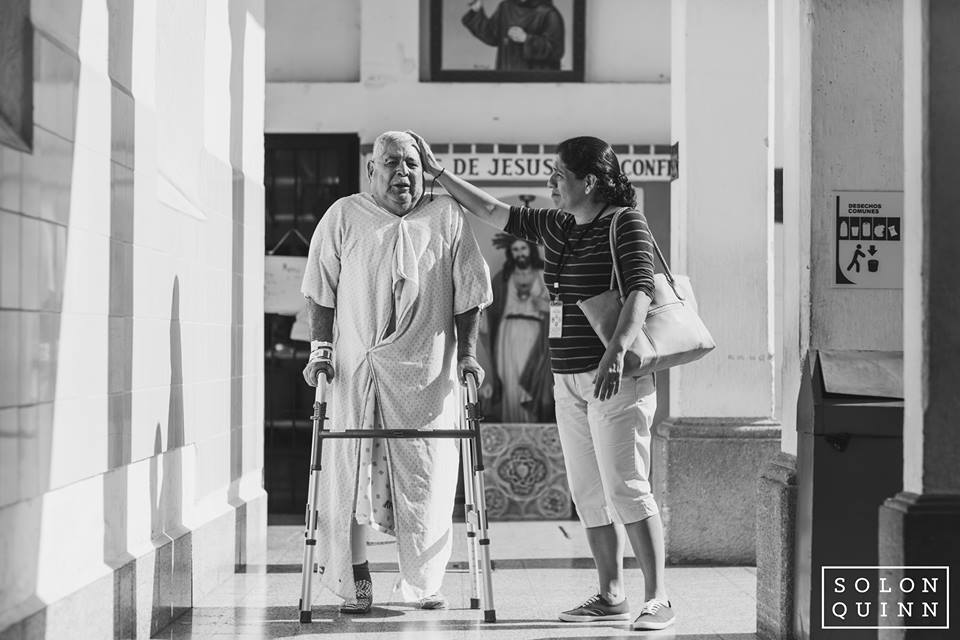There is risk in all things.
Each of us, at any given moment, is embracing some degree of risk. Usually, it is modest. Driving a car, riding a bicycle, crossing a busy street… these things are not completely risk-free.
And with risk comes reward. The willingness to accept risk stems from an understanding that our lives may be bettered or our circumstances improved by enduring that risk.
Sometimes, we choose to put ourselves at a greater degree of risk, in order to reap a potentially greater reward. One might choose to leave a stable job in order to pursue a higher paying position, or make a financial investment in hopes of achieving greater gains.
Choosing to undergo surgery reflects this risk/reward ratio perfectly. And nowhere is this relationship more transparent than in the surgical setting of a country like Guatemala.
The patients who undergo surgery with Operation Walk Syracuse are at significant risk, for a few obvious reasons. First, all surgery has a degree of risk (the term "minor surgery" is an oxymoron). Additionally, their surgical pathology is extreme, and the surgeries that they require are sometimes quite complex. So the decision to undergo that degree of surgery can be painstaking.
In many cases, though, the limb or joint on which they are choosing to have surgery is profoundly dysfunctional. And that in itself is a significant risk. In such a case, the decision to live without surgery presents a higher degree of risk than having the surgery. And with no surgery, there is no potential for the reward of an improved life.
For each potential surgical patient, even here in Guatemala, the sweet spot in that risk/reward ratio is a moving target. And each potential surgical candidate must think long and hard about the risks of surgery versus the risks of not having surgery.
One of our first surgical patients of the week was a 72-year-old man with advanced arthritis in both knees. Seeking to minimize his potential surgical risk, on our first day we replaced just his right knee. That leg was immediately improved, but his arthritic left knee still left him dysfunctional. So yesterday, our fourth and final surgical day, at his request, we took him back to the operating room and replaced his left knee, too.
The decision to have not just one, but two major orthopedic surgeries in the span of four days is a pretty big decision. It is a significant risk. But this morning, on rounds, he was smiling and appreciative, and obviously delighted to now have the opportunity to improve his quality of life. He was willing to endure the significant risk in order to reap a larger reward.
Each of us stares down this risk/reward ratio every day. For the patients of Operation Walk Syracuse, the risks may be significant, but the rewards are much more significant. And for us, it is an honor to help these patients balance risk with potential rewards.
The stalwart staff of Operation Walk Syracuse is spending today repacking boxes and equipment, and helping our post-op patients prepare for their new lives after our departure. For those patients, the risks have been endured. Now they can set their sights on the potential of great rewards.
And, once again, our hats are off to the OpWalk nursing, therapy, surgical and support staff who work so hard to make those rewards possible. Thank you, thank you, thank you.

